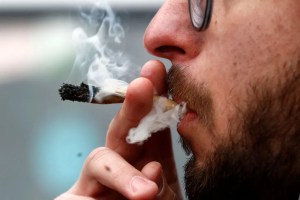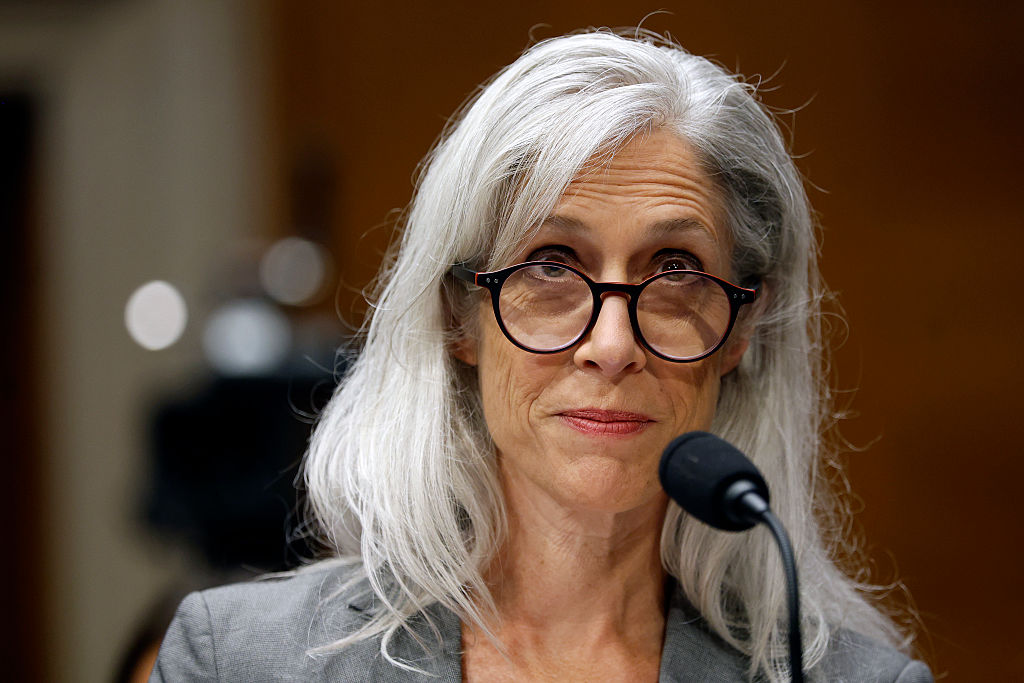COVID-19 has suddenly made much of the western public health establishment effectively redundant. Unused to dealing with infectious disease, we have a legion of epidemiologists who have never studied an epidemic and a horde of public health professionals who are more comfortable discussing soda taxes than virology.
If you’ve spent your career believing that drinking, smoking and obesity are the real epidemics, a potentially fatal virus forcing billions of people into hiding could make you question your priorities. But if the nanny state lobby was disoriented at first, it has quickly learnt to adapt. The public are temporarily willing to sacrifice a bit of liberty for safety and the lifestyle regulators sense fresh opportunities.
Last year’s vaping ‘epidemic’ now looks like a rinky-dink panic from a different age, but those who orchestrated it are not letting go. There is zero evidence that vapers are at greater risk of catching coronavirus and no reason to think they are more likely to die from it. Nevertheless, when asked about relatively high rates of COVID-19 among young Americans, Surgeon General Jerome Adams told a television audience that ‘it could be because we know we have a higher proportion of people in the United States and also in Italy who vape.’ Turning this baseless speculation into implicit fact, he added that ‘we don’t know if that’s the only cause.’
Last month, the New York State Academy of Family Physicians called on Gov. Cuomo to ban the sale of all tobacco and e-cigarette products, claiming (wrongly) that ‘mounting evidence demonstrates the link between tobacco use and increased risk for progressive COVID-19’. Cuomo did not quite go that far, but on Friday he prohibited the sale of tobacco and vape products in pharmacies and banned e-cigarette flavorings.
Prof Stanton Glantz, a diehard anti-vaping academic who recently had his study linking e-cigarettes to heart attacks retracted by the Journal of the American Heart Association, wants government to go further still. He has called on politicians to ban vaping in public places to save people from the secondhand vapor that will supposedly leave them susceptible to COVID-19. Again, there is no evidence for this.
It is no coincidence that indoor vaping bans and the prohibition of ‘characterizing flavors’ have been the primary objectives of the anti-vaping movement for the last two years. For cigarettes, the goal is full prohibition, and there are some who hope that this too can be achieved in the fog of war on coronavirus.
Since people with underlying health conditions are most at risk of becoming critically ill with COVID-19, it would not be surprising if smoking and obesity were risk factors. A plausible hypothesis is not enough, however, and there is remarkably little evidence that smokers and the overweight are suffering more than anyone else. Only the morbidly obese are significantly over-represented in Britain’s coronavirus wards while smokers are conspicuously under-represented in both China and the USA. An evidence review published three weeks ago found no association between smoking and the severity of COVID-19.
This is a rapidly evolving field of research and the results may change over time, but evidence from the 13 studies published to date ‘does not support the argument that current smoking is a risk factor for hospitalization for COVID-19’. On the contrary, it ‘raises the hypothesis that nicotine may have beneficial effects on COVID-19.’
Taken as a whole, the evidence on smoking and COVID-19 does not point in the direction the ‘public health’ lobby would like it to. And so they have ignored it, focusing instead on a single study which reported a monstrously high 14-fold increase in risk for smokers who contract the disease. The study only looked at five smokers and is an obvious outlier, but it has been treated as definitive proof by activists around the world. Public Health England, which is under fire for its weak response to the pandemic, retreated to its comfort zone last week, telling smokers that they are ‘at greater risk of developing severe disease from the COVID-19 virus’ and that there ‘has never been a more important time to stop smoking.’ The only evidence cited by the agency was ‘a small but highly impactful survey from China’ which found that ‘smokers with COVID-19 are 14 times more likely to develop severe disease.’
Off the back of this dubious factoid, South Africa has banned the sale of tobacco during its 21 day lockdown and has also banned alcohol for good measure. Nanny statists everywhere are eager to follow its lead. In the UK, where alcohol retail outlets are classified as essential services, a Director of Public Health suggested that ‘whilst we are implementing emergency legislation why not go really far and ban tobacco sales’.
In the same spirit of opportunism, a group of public health academics wrote to The Times of London with a wish list of policies they claimed were necessary to defeat the virus, including old favorites such as reducing speed limits and introducing minimum pricing for alcohol. Not wanting to be left out, a group of anti-gambling politicians expressed concern about housebound Brits turning to online gambling during the lockdown and called for crackdown on the gambling industry, just as they had before anyone had heard of COVID-19.
Meanwhile in Europe, the International Order of Good Templars, a gospel temperance group which recently changed its name to Movendi International, has called for all alcohol retail outlets to be classed as ‘non-essential’ and claims
There is something almost heroic about single-issue pressure groups insisting that their longstanding pet policies just happen to be the solution to a black swan event in a world turned upside down. And if you doubt that the world has been turned upside down, consider this. While public health groups focus on evidence-free hunches and lifestyle trivia, e-cigarette companies and Diageo are producing free hand sanitizer, Philip Morris is donating ventilators and British American Tobacco is working on a vaccine. Now that is real public health work.

























